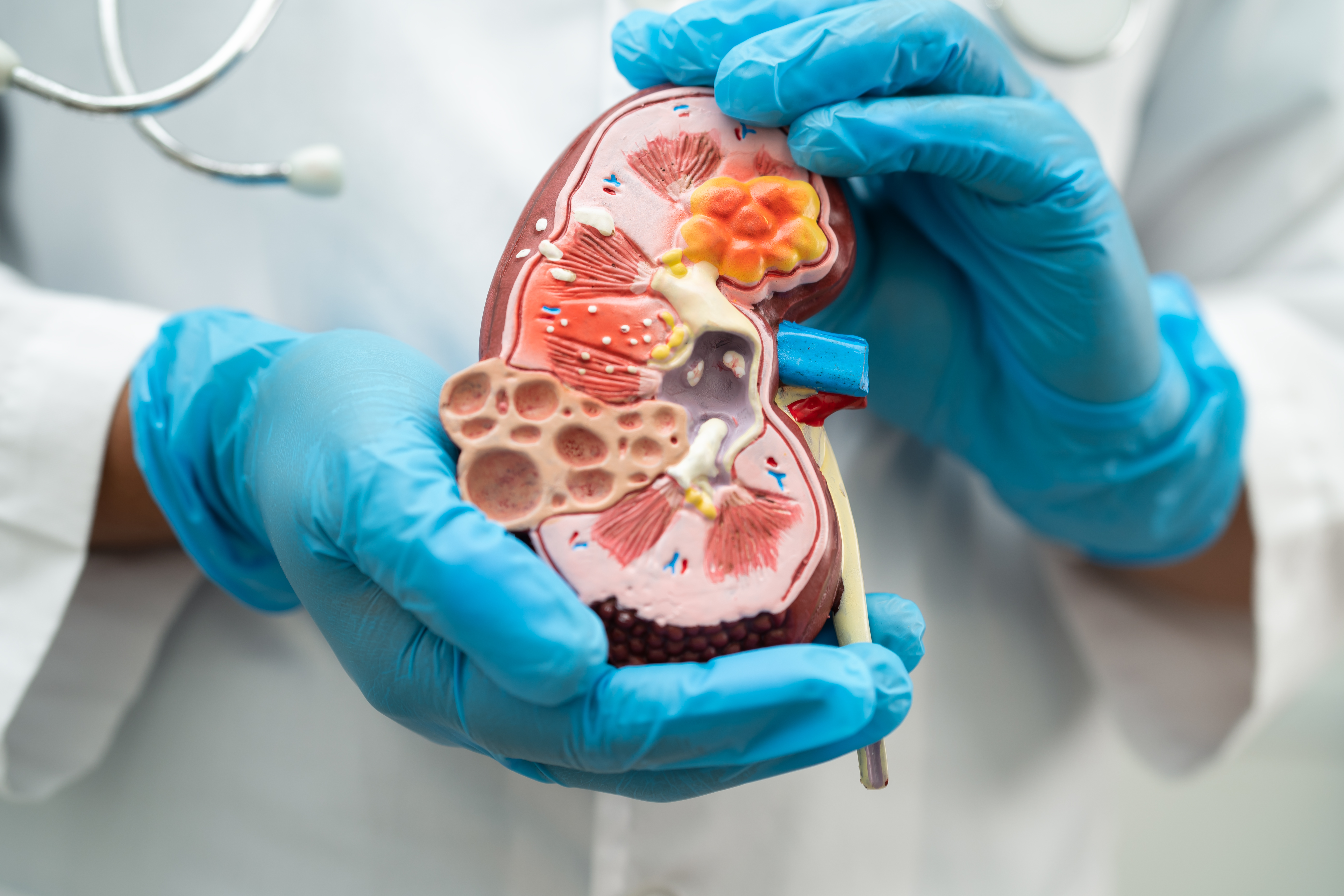Chronic Kidney Disease Stages: How To Adapt Your Lifestyle for Each Phase
Chronic Kidney Disease (CKD) is a progressive condition characterized by the gradual loss of kidney function over time. This condition affects millions globally and can lead to kidney failure if not managed properly. Understanding CKD involves recognizing its stages, which range from mild kidney damage to complete kidney failure. Each stage requires specific lifestyle adaptations to maintain health and quality of life. This article explores essential strategies for navigating the stages of CKD, focusing on lifestyle changes that ensure long-term well-being. By examining these strategies, individuals can better manage their condition, reduce complications, and improve their overall quality of life. By understanding the intricacies of CKD and embracing necessary lifestyle changes, individuals can take control of their health and navigate this challenging journey with confidence and resilience.
Recognizing the Stages of Chronic Kidney Disease

Chronic Kidney Disease is classified into five stages, each defined by the glomerular filtration rate (GFR), which measures how well the kidneys filter waste from the blood. Stage 1 is characterized by normal or high GFR with slight kidney damage, while Stage 5 indicates kidney failure requiring dialysis or transplantation. Recognizing these stages is crucial for timely intervention and management. Early detection can slow progression and improve outcomes, making regular monitoring of kidney function essential.
Understanding the stages of CKD helps individuals and healthcare providers tailor treatment plans to the specific needs of the patient. Each stage presents unique challenges and requires different lifestyle adjustments. For instance, dietary restrictions become more stringent as the disease progresses, and medication regimens may need to be adjusted. By staying informed about the stages of CKD, individuals can work closely with their healthcare team to develop a personalized plan that addresses their specific needs and goals.
Embracing Dietary Changes for Kidney Health

Diet plays a pivotal role in managing CKD, and embracing dietary changes is essential for maintaining kidney health. A kidney-friendly diet typically involves reducing sodium, phosphorus, and potassium intake while ensuring adequate protein and calorie consumption. These modifications help reduce the workload on the kidneys and prevent further damage. Consulting with a registered dietitian can provide personalized guidance and support in creating a suitable meal plan.
Incorporating more fruits, vegetables, and whole grains into the diet can enhance overall health and support kidney function. However, it's important to choose low-potassium options and monitor portion sizes. Staying hydrated is also crucial, but fluid intake may need to be adjusted based on the stage of CKD. By making mindful dietary choices, individuals can support their kidney health and improve their quality of life.
The Importance of Regular Monitoring and Check-Ups

Regular monitoring and check-ups are vital components of managing CKD. Routine blood tests, urine tests, and blood pressure measurements help track the progression of the disease and detect any complications early on. These assessments provide valuable information that guides treatment decisions and lifestyle adjustments. Staying on top of medical appointments ensures that any changes in kidney function are promptly addressed.
Developing a strong partnership with healthcare providers is essential for effective CKD management. Open communication and regular consultations allow for timely interventions and adjustments to treatment plans. By prioritizing regular monitoring and check-ups, individuals can take proactive steps to manage their condition and prevent complications.
Managing Blood Pressure for Kidney Health

High blood pressure is both a cause and a consequence of CKD, making its management crucial for kidney health. Controlling blood pressure helps slow the progression of CKD and reduces the risk of cardiovascular complications. Lifestyle changes, such as reducing salt intake, maintaining a healthy weight, and engaging in regular physical activity, can significantly impact blood pressure levels.
In some cases, medication may be necessary to achieve optimal blood pressure control. Working closely with healthcare providers to find the right combination of lifestyle changes and medication is essential. By effectively managing blood pressure, individuals can protect their kidneys and improve their overall health.
Understanding the Role of Medication in CKD Management

Medication plays a critical role in managing CKD and its associated symptoms. Depending on the stage of CKD and the presence of other health conditions, individuals may require medications to control blood pressure, manage blood sugar levels, or treat anemia. It's important to take medications as prescribed and communicate any side effects or concerns with healthcare providers.
Understanding the purpose and potential side effects of each medication empowers individuals to take an active role in their treatment. Keeping an updated list of medications and attending regular medication reviews can help ensure that the treatment regimen remains effective and safe. By understanding and adhering to their medication plan, individuals can better manage their CKD and maintain their health.
The Role of Exercise in CKD Management

Physical activity is an important component of managing CKD and improving overall health. Regular exercise helps control blood pressure, maintain a healthy weight, and improve cardiovascular health. It also enhances mood and reduces stress, contributing to a better quality of life. However, it's important to choose activities that are appropriate for the individual's fitness level and stage of CKD.
Consulting with healthcare providers or a physical therapist can help develop a safe and effective exercise plan. Activities such as walking, swimming, and yoga are often recommended for individuals with CKD. By incorporating regular physical activity into their routine, individuals can support their kidney health and enhance their well-being.
Stress Management and Mental Health in CKD

Managing stress and maintaining mental health are crucial aspects of living with CKD. The emotional burden of managing a chronic condition can lead to anxiety, depression, and stress. Developing effective coping strategies, such as mindfulness, meditation, and relaxation techniques, can help individuals manage stress and improve their mental health.
Seeking support from mental health professionals or joining support groups can provide valuable resources and a sense of community. It's important to prioritize mental health and address any emotional challenges that arise during the CKD journey. By managing stress and maintaining mental well-being, individuals can improve their quality of life and better cope with the challenges of CKD.
Building a Support System

Having a strong support system is essential for navigating the challenges of CKD. Family, friends, and healthcare providers play a crucial role in providing emotional support, practical assistance, and encouragement. Building a support system involves open communication, setting realistic expectations, and asking for help when needed.
Joining support groups or connecting with others who have CKD can provide valuable insights and a sense of camaraderie. Sharing experiences and learning from others can help individuals feel less isolated and more empowered. By building a robust support system, individuals can navigate the challenges of CKD with greater confidence and resilience.
The Impact of Smoking and Alcohol on Kidney Health

Smoking and excessive alcohol consumption can have detrimental effects on kidney health and exacerbate the progression of CKD. Smoking damages blood vessels, reduces blood flow to the kidneys, and increases the risk of high blood pressure. Alcohol can interfere with kidney function and lead to dehydration, further stressing the kidneys.
Quitting smoking and moderating alcohol intake are important steps in managing CKD and protecting kidney health. Seeking support from healthcare providers or joining cessation programs can provide the necessary tools and resources to make these lifestyle changes. By eliminating these harmful habits, individuals can improve their kidney health and overall well-being.
Navigating Work and Social Life with CKD

Balancing work, social life, and CKD management can be challenging, but it's essential for maintaining a sense of normalcy and fulfillment. Open communication with employers, colleagues, and friends about the condition and its impact can help create a supportive environment. Making necessary adjustments, such as flexible work hours or remote work options, can help individuals manage their health while fulfilling their responsibilities.
It's important to prioritize self-care and set boundaries to prevent burnout. Engaging in social activities that align with lifestyle changes, such as low-key gatherings or outdoor activities, can help maintain social connections. By navigating work and social life thoughtfully, individuals can achieve a balanced and fulfilling life with CKD.
Understanding Dialysis and Transplant Options

For individuals with advanced CKD, understanding dialysis and transplant options is crucial for making informed decisions about their treatment. Dialysis is a life-sustaining treatment that removes waste and excess fluid from the blood when the kidneys can no longer perform these functions. There are two main types of dialysis: hemodialysis and peritoneal dialysis, each with its own advantages and considerations.
Kidney transplantation offers an alternative to dialysis and can significantly improve quality of life. However, it involves complex medical and logistical considerations, including finding a suitable donor and managing post-transplant medications. Understanding the pros and cons of each option and discussing them with healthcare providers can help individuals make informed decisions that align with their goals and preferences.
The Role of Nutrition in Preventing Complications

Nutrition plays a vital role in preventing complications associated with CKD, such as cardiovascular disease, bone disorders, and anemia. A balanced diet that meets individual nutritional needs can help manage these complications and support overall health. It's important to monitor nutrient intake and make adjustments based on the stage of CKD and any other health conditions.
Working with a registered dietitian can provide personalized guidance on meal planning and nutrient management. Incorporating heart-healthy foods, maintaining adequate calcium and vitamin D levels, and managing iron intake are important considerations. By prioritizing nutrition, individuals can reduce the risk of complications and improve their quality of life.
Managing Fluid Intake and Electrolyte Balance

Managing fluid intake and electrolyte balance is crucial for individuals with CKD, as the kidneys' ability to regulate these functions is impaired. Excess fluid can lead to swelling, high blood pressure, and heart complications, while imbalances in electrolytes such as potassium and phosphorus can have serious health consequences.
Monitoring fluid intake and working with healthcare providers to determine appropriate limits is essential. Choosing low-sodium and low-potassium foods, as well as avoiding processed and high-phosphorus foods, can help maintain electrolyte balance. By managing fluid and electrolyte levels, individuals can prevent complications and support their kidney health.
The Importance of Sleep and Rest

Adequate sleep and rest are essential for managing CKD and supporting overall health. Poor sleep can exacerbate symptoms, affect mood, and hinder the body's ability to heal and regenerate. Establishing a regular sleep routine, creating a comfortable sleep environment, and addressing any sleep disorders are important steps in promoting restful sleep.
Incorporating relaxation techniques, such as deep breathing or meditation, can help improve sleep quality. It's important to prioritize rest and listen to the body's needs, especially during periods of fatigue or illness. By ensuring adequate sleep and rest, individuals can enhance their physical and mental well-being and better manage their CKD.
Understanding and Managing Anemia in CKD

Anemia is a common complication of CKD, resulting from reduced production of erythropoietin, a hormone that stimulates red blood cell production. Managing anemia involves monitoring hemoglobin levels and addressing underlying causes, such as iron deficiency or inflammation. Treatment may include iron supplements, erythropoiesis-stimulating agents, or blood transfusions.
Working closely with healthcare providers to monitor and manage anemia is essential for improving energy levels and quality of life. Dietary adjustments, such as increasing iron-rich foods and ensuring adequate intake of vitamin B12 and folic acid, can also support red blood cell production. By effectively managing anemia, individuals can reduce fatigue and enhance their well-being.
The Role of Hydration in CKD Management

Hydration is a critical aspect of CKD management, but it requires careful balance. While staying hydrated is important for overall health, excessive fluid intake can strain the kidneys and lead to complications. Working with healthcare providers to determine appropriate fluid limits based on the stage of CKD and individual needs is essential.
Choosing water and low-sugar, caffeine-free beverages can help maintain hydration without overloading the kidneys. Monitoring fluid intake, especially during hot weather or physical activity, is important to prevent dehydration or fluid overload. By managing hydration effectively, individuals can support their kidney health and overall well-being.
The Impact of Chronic Pain and Fatigue

Chronic pain and fatigue are common challenges for individuals with CKD, affecting their quality of life and ability to engage in daily activities. Addressing these symptoms involves a combination of medical treatment, lifestyle changes, and coping strategies. Pain management may include medications, physical therapy, or alternative therapies such as acupuncture.
Fatigue can be managed by prioritizing rest, pacing activities, and incorporating regular physical activity. It's important to communicate with healthcare providers about pain and fatigue levels to develop an effective management plan. By addressing chronic pain and fatigue, individuals can improve their quality of life and better manage their CKD.
The Role of Education and Self-Advocacy

Education and self-advocacy are empowering tools for individuals with CKD, enabling them to take an active role in their care and make informed decisions. Understanding the condition, treatment options, and lifestyle changes helps individuals feel more in control and confident in managing their health.
Engaging in educational resources, such as workshops, online courses, or support groups, can provide valuable information and support. Self-advocacy involves communicating effectively with healthcare providers, asking questions, and expressing preferences and concerns. By prioritizing education and self-advocacy, individuals can navigate the challenges of CKD with greater confidence and empowerment.
Planning for the Future with CKD

Planning for the future is an important aspect of managing CKD, as the condition can impact long-term health and lifestyle. This involves setting realistic goals, preparing for potential changes in health status, and considering options for advanced care if needed. Creating an advance care plan and discussing it with family and healthcare providers ensures that individual preferences are respected.
Financial planning and exploring insurance options can help manage the costs associated with CKD treatment and care. It's important to stay informed about advancements in CKD research and treatment, as new options may become available. By planning for the future, individuals can feel more prepared and secure in their journey with CKD.
Embracing Change for Lasting Health

Navigating the stages of Chronic Kidney Disease requires a comprehensive approach that encompasses medical management, lifestyle changes, and emotional support. By embracing dietary changes, managing stress, building a support system, and prioritizing education, individuals can successfully adapt their lifestyle for lasting health. Each stage of CKD presents unique challenges, but with the right strategies and support, individuals can take control of their health and improve their quality of life.
This article has explored essential ways to manage CKD and adapt to its challenges. By implementing these strategies and working closely with healthcare providers, individuals can navigate the stages of CKD with confidence and resilience. Embracing change and prioritizing health can lead to lasting improvements in well-being and quality of life.